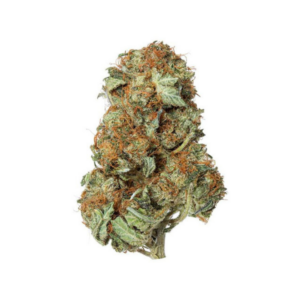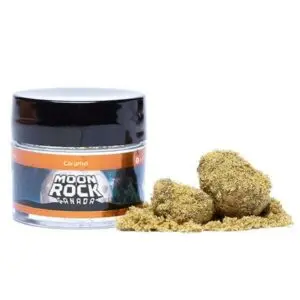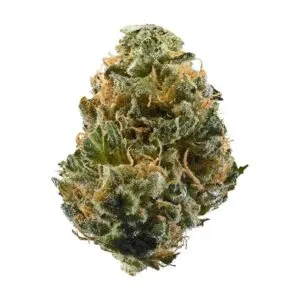Weed Food Poisoning
Does Weed Help with Food Poisoning?
Food poisoning: it’s that awful, stomach-churning experience that can ruin your day, weekend, or even your whole week. One minute, you’re enjoying a seemingly innocent meal, and the next, you’re dealing with nausea, vomiting, diarrhea, and a host of other unpleasant symptoms. While traditional treatments involve rest, hydration, and over-the-counter medications, some people are exploring alternative remedies, including the use of cannabis. But does weed help with food poisoning? Let’s dive into this intriguing question and see what science and anecdotal evidence have to say.
Understanding Food Poisoning
First, let’s get a quick understanding of what food poisoning is. Food poisoning occurs when you consume food or beverages contaminated with harmful bacteria, viruses, parasites, or toxins. Common culprits include Salmonella, E. coli, Norovirus, and Listeria. Symptoms can range from mild to severe and typically include:
- Nausea
- Vomiting
- Diarrhea
- Abdominal cramps
- Fever
Most cases of food poisoning resolve on their own within a few days, but severe cases may require medical attention.

Traditional Treatments for Food Poisoning
When it comes to treating food poisoning, the primary goals are to stay hydrated, manage symptoms, and let the body recover. Here are some common strategies:
- Hydration: Drink plenty of fluids, such as water, clear broths, or oral rehydration solutions.
- Rest: Give your body time to heal by getting plenty of rest.
- Diet: Stick to bland foods like crackers, toast, and rice until you feel better.
- Medications: Over-the-counter medications like anti-nausea drugs or anti-diarrheal agents can provide symptom relief.
Cannabis as an Alternative Remedy
Cannabis, also known as marijuana or weed, has been used for centuries for its medicinal properties. It contains compounds called cannabinoids, with the two most well-known being THC (tetrahydrocannabinol) and CBD (cannabidiol). THC is responsible for the psychoactive effects of cannabis, while CBD is non-psychoactive and is often praised for its therapeutic benefits.
So, can cannabis help with food poisoning? Let’s explore how it might address some of the key symptoms.
Nausea and Vomiting Relief
One of the most well-documented uses of cannabis is its ability to alleviate nausea and vomiting. This is particularly relevant for patients undergoing chemotherapy, who often experience severe nausea and vomiting as side effects. Several studies have shown that cannabinoids, particularly THC, can effectively reduce these symptoms.
For those suffering from food poisoning, this means that cannabis could potentially help calm the stomach and reduce the urge to vomit. Inhalation methods like smoking or vaping cannabis might provide the fastest relief, as the effects are felt almost immediately.

Pain and Cramping
Abdominal cramps and pain are common symptoms of food poisoning. Cannabis is known for its pain-relieving properties, which can be attributed to both THC and CBD. These cannabinoids interact with the body’s endocannabinoid system, which plays a role in regulating pain and inflammation.
By using cannabis, individuals might find relief from the uncomfortable cramps and pains associated with food poisoning, allowing them to rest more comfortably.
Appetite Stimulation
Food poisoning often leads to a loss of appetite, which can hinder recovery. Cannabis is famous for causing the “munchies,” a term used to describe the increase in appetite experienced by users. THC stimulates the release of ghrelin, a hormone that increases hunger.
By enhancing appetite, cannabis could help individuals maintain their nutrition and energy levels, which are crucial for recovery. Check out Dank Bros’ Edibles at our website today!
Anxiety and Stress Reduction
Dealing with food poisoning can be stressful and anxiety-inducing. Cannabis, particularly strains high in CBD, has been shown to have anxiolytic (anxiety-reducing) properties. Using cannabis might help individuals relax and manage the stress associated with being unwell.

Risks and Considerations
As with any treatment, it’s important to consider the potential risks and side effects of using cannabis for food poisoning. Here are a few things to keep in mind:
- Psychoactive Effects: THC can cause psychoactive effects, such as altered perception, euphoria, and, in some cases, anxiety or paranoia. If you’re new to cannabis or sensitive to THC, start with a low dose and monitor how you feel.
- Legality: Cannabis laws vary widely depending on where you live. Make sure you’re aware of the legal status of cannabis in your area before using it.
- Interactions with Other Medications: Cannabis can interact with certain medications. If you’re taking other drugs, consult with a healthcare professional to ensure there are no adverse interactions.
- Quality and Source: Use high-quality cannabis products from reputable sources to avoid contaminants and ensure you’re getting the intended effects.
Visit our website today and choose from our New Products to satisfy your cannabis cravings now!
How to Use Cannabis for Food Poisoning
If you decide to try cannabis to alleviate food poisoning symptoms, here are a few methods you can consider:
- Smoking or Vaping: These methods provide fast relief, as the cannabinoids are quickly absorbed into the bloodstream through the lungs.
- Edibles: Edible cannabis products, such as gummies or tinctures, take longer to take effect but provide longer-lasting relief.
- CBD Oil: If you prefer to avoid THC, CBD oil can offer some of the therapeutic benefits without the psychoactive effects.
Start with a low dose and gradually increase if needed. Pay attention to how your body responds and adjust accordingly.
Wondering where you can buy quality CBD Products? Visit Dank Bros website now to get your favorite cannabis products.

Conclusion
While more research is needed to fully understand the potential benefits of cannabis for food poisoning, existing evidence suggests that it could offer relief from key symptoms like nausea, vomiting, pain, and loss of appetite. Many individuals have found cannabis to be a helpful tool in managing their symptoms and recovering more comfortably.
If you’re considering using cannabis for food poisoning, it’s important to approach it with caution. Start with a low dose, be aware of the potential risks, and consult with a healthcare professional if you have any concerns or are taking other medications.
Ultimately, whether or not cannabis is right for you depends on your personal preferences, legal considerations, and how your body responds to it. As with any alternative treatment, it’s about finding what works best for you and your unique situation.
So, next time you find yourself dealing with the unpleasant symptoms of food poisoning, consider whether cannabis might be a helpful addition to your recovery toolkit. With its potential to alleviate nausea, reduce pain, stimulate appetite, and ease anxiety, it could be the relief you’ve been looking for.
Are you curious about “How to Smoke a Weed Pipe?” Just visit our website today to know more!Curious if weed can help with food poisoning? Find out by exploring our premium cannabis selection at Dank Bros. Our high-quality products might provide the relief you’re seeking. Don’t let food poisoning ruin your day—shop with us now for fast, effective options. Experience the potential benefits of cannabis today!
